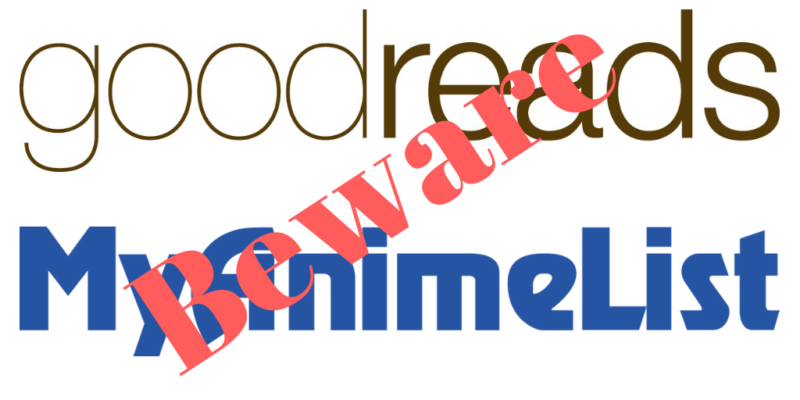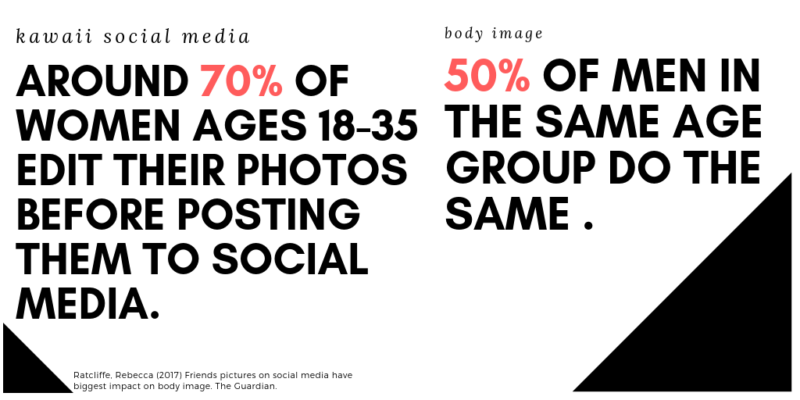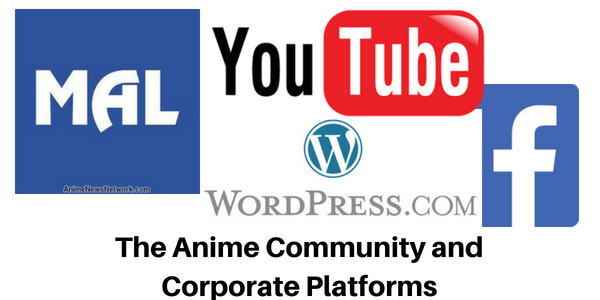
However, that data tells corporations a lot about each of us.

Think about walking into a room and seeing a bookshelf. Bookshelves tell us a lot about a person. First, the neatness (or lack thereof) tells us the person is harried or careful. It can show where person is on their book or movie list. If you organize your shelves as I do–by genre and alphabetized by title–you might be a person who enjoys order. Any sort of organization scheme suggestions a desire to assert order. Whereas as messy shelf–stacked with vertical and horizontal books or even books just tossed on the floor–suggests a disregard for space or shows the person has other priorities.
Without even getting into the types of books and movies on the shelf (or stacked on the floor), we have valuable data for marketing. For example, an orderly person like me is more likely buy book ends than a floor-stack person. Likewise, I may be more likely to buy more expensive shelving. Beyond books, an orderly person is more likely to buy things ordered well in a store. I can’t stand cluttered stores; I immediately leave, often without buying anything and with a headache. Cluttered shelving and book stacks suggest the person may enjoy rifling through dump bins of items (I shudder and avoid them). The same person may be more likely be buy closet organizers (that may end up cluttered).

Orderly minded people may also feel more stress. They try to apply order to their surroundings, which will often resist the effort. Cluttered homes also create stress (more than orderly homes, actually). So when cleaning flurries happen, a market may sell more cleaners and garbage services.
Much of this is speculation, but marketers and AI look for links like this. Everything we do leaves behind data–including everything we don’t do. This data can be used to sell us goods and services we need and don’t need. Marketing intends to create demand, not find it. How many times have you wanted to watch an anime after watching a trailer? The trailer creates a desire to watch that particular anime you may not have had in the first place.
Now here’s the kicker, even not leaving data behind creates data. Avoidance tells marketers that you lack interest in a product or service which allows them to retool the message or offer an alternative that will. For example, I have security on Firefox (if you worry about your privacy you need to stop using Chrome. It send everything you do to Google, even after you tighten the privacy settings. Tor is great if you are paranoid) that reduces the amount of data I send to Facebook and other companies. However, they can still get my IP address. Absence of data tells the companies that I have privacy concerns and that I am a little more tech savvy. It also tells them normal advertising systems won’t get through to me. In response, they can embed HTML 5 ads or other options that browsers can reliably block, and those ads can even focus on that fact.
Now when we offer our data to MyAnimeList and Goodreads, we offer gold for marketers. They can infer taste, age, gender, education level, and hosts of data from the data we offer. For example, yaoi titles would mark the user as (most likely) young, female, high school or college education, and perhaps single. All of this general data can then be used to target say, dating services, or chocolate or even donating to a cat shelter.
MyAnimeList and Goodreads can shift what types of stories we get from Japan too. If a company sees a trend in isekei, we will see more of that type of anime released. Once the company sees interest slip, they will move on to the next story type. Now this can be good. It saves companies money by reducing experimentation. This allows more funds for truly great, ground-breaking stories that may not appear otherwise. A company is more apt to take a risk on something if it knows another property will more-than-cover the costs of the risk. After all, every publisher is looking for the next homerun, and that requires taking a swing at questionable pitches every so often. Book publishing works this way. Bestsellers like James Patterson subsidize the other authors who aren’t fast sellers.

On the other hand, this also allows companies to make more of the same. The dominance of moe gives us an example. Of course, sales ultimately decide what manga and anime we see in the West, but our lists buttress those numbers too.
Bookshelves are terribly intimate. While I have a Goodreads account where I post what I read, I don’t post everything I read (I usually read 3 books at once). It’s not that I’m reading anything questionable–well, depending on your political, religious, or historical perspective. Rather, I don’t want to invite certain patterns. I’ve found the stray political book can spark a flood of suggestions that drown what I am really interested in reading. Not to mention some of my closest religious thoughts should stay just that: close. Other times, I don’t have a certain perspective or stance, and I don’t want people drawing faulty conclusions about my view. It leads to flaming and uncomfortable clarifications sometimes.

Of course, I abhor and avoid social media, so this hasn’t been as much of a problem. Goodreads is one of the few social media platforms I use more than occasionally. But I also don’t like the idea of companies, Amazon in this case, knowing everything about me. Private life remains important for me, as I hope it does for you. If you aren’t bothered by any of this, or find the services useful, by all means use them. I’ve considered opening a MAL account to help me track what anime I’ve seen and discussed here on JP (and show that I am not as well versed in anime watching as you may think I am!). But that is just one more account I won’t keep updated.
There’s nothing wrong with using these “free” services as long as you understand the value of your data. The companies should pay us for every bit of data we share. They make so much money off of us that it’s only fair we take a slice of it. After all, if everyone stopped giving up their data, Facebook and other companies would disappear. Data is money.We have the responsibility of not giving our preferences and thoughts out willy-nilly. Not everyone needs to know what anime we watch or books we read or movies we enjoy or even food we like. Some things need to be left for those closest to us instead of disappearing into the AI pattern crunching system designed to make us want more.




I agree with what you are saying. But to what point can we prevent them from collecting data? Some services are indeed pretty useful so I find it inevitable that companies will do so. I make sure to provide just the minimum amount though. I don’t participate in forums on MAL and don’t fill in the additional info such as start/end date, media used, etc. I’m only a lurker on social media and rarely post. I don’t link my accounts across platforms. Still, I have a feeling that the tech companies somehow exhange information behind our backs and can easily identify a person in real life.
Are you including Incognito mode when you are talking about Chrome?
Firefox has various plugins that segregate the services into their own containers so they can’t track everything you do. The plugins also break a good portion of websites.
You are correct. You don’t have to have a Facebook account for Facebook to know about you. National Public Radio has touched on this in several news shows.. The company works with ISPs and credit agencies to track your movements and purchases even if you don’t have an account.
From my experiences with Chrome, Incognito mode didn’t seem to make much difference. I still saw targeted Google advertising. I’ve been a Firefox user since 0.5, so I am a bit biased. Chrome is spunkier, but it creeps me out with how it watches. I’ve seen advertising targeting a topic in a Word document I was working on (researching from books instead of online). While it is most likely confirmation bias on my part, the event made me stop using Chrome as my everyday browser.
I see! Thank you for the information! I’ll try Firefox out. I had always had adblock on, so I never noticed that Chrome still keeps tracking what I do in incognito. It did creep me out when a travel ad for a country I just searched for popped up in normal mode. I thought switching to incognito would help but it seems I am still not safe.
Do you mean that you did not make any google search when working on the word document? Could you please clarify that point?
Also, have you heard of Share Lab? They have interesting research regarding how social media can make use of the information they collect on us. The articles are pretty long though.
(Link: https://labs.rs/en/)
Incognito isn’t supposed to send as much data, but I suspect it tells Google that you are using the mode.
That’s right. Chrome was open, but I was doing any searches. Yet it seemed to notice what I typed in word from the books I was using. When I finished and returned to Chrome, the ads seemed to target what I was writing. Now it could’ve been just a coincidence based on searches the day before. Either way, I stopped using Chrome after that and returned to Firefox.
I haven’t. Thank you! I will have to take a look.
You sound like BJ Mendelson in his book, “Privacy.” He says the same things you’re saying. There’s this huge disconnect where marketers believe people want “relevant advertising” when most people put up ad-blockers. Industry vs. reality sometimes, I tell you.
In university, I took computer forensics, and it surprised me just how much we delude ourselves about privacy. It’s been an illusion since at least the 1970s. That said, we should still be careful with what we freely offer to social media companies.
I can’t count the number of websites that beg you to disable your adblocker. The only relevant advertising is no advertising! But seriously, advertising wouldn’t be bad (and it would be more effective) if it would reduce by, say, 90-95%. But there is too much money and misinformation sloshing around for this to happen.
It’s been an illusion since the WWII days as governments told citizens that they need their information in order to combat potential foreign enemy spies. There’s a really dark history concerning privacy.
And yes, there is too much money for misinformation since ad fraud is as prolific as gambling for those who partake in it.
I don’t use MAL much anymore, but I am curious about Anime Planet. I was wondering if you tried using it as a go-to database.
I wonder how much of this isn’t truly new. After all, in small villages everyone knew everyone’s business.
I haven’t heard of Anime Planet. I spend most of my time in academic databases, but I will have to take a look.